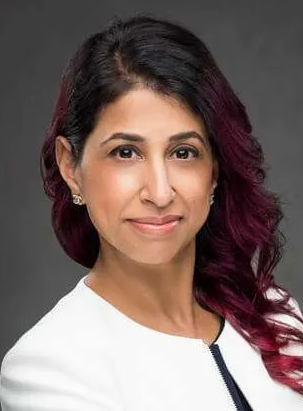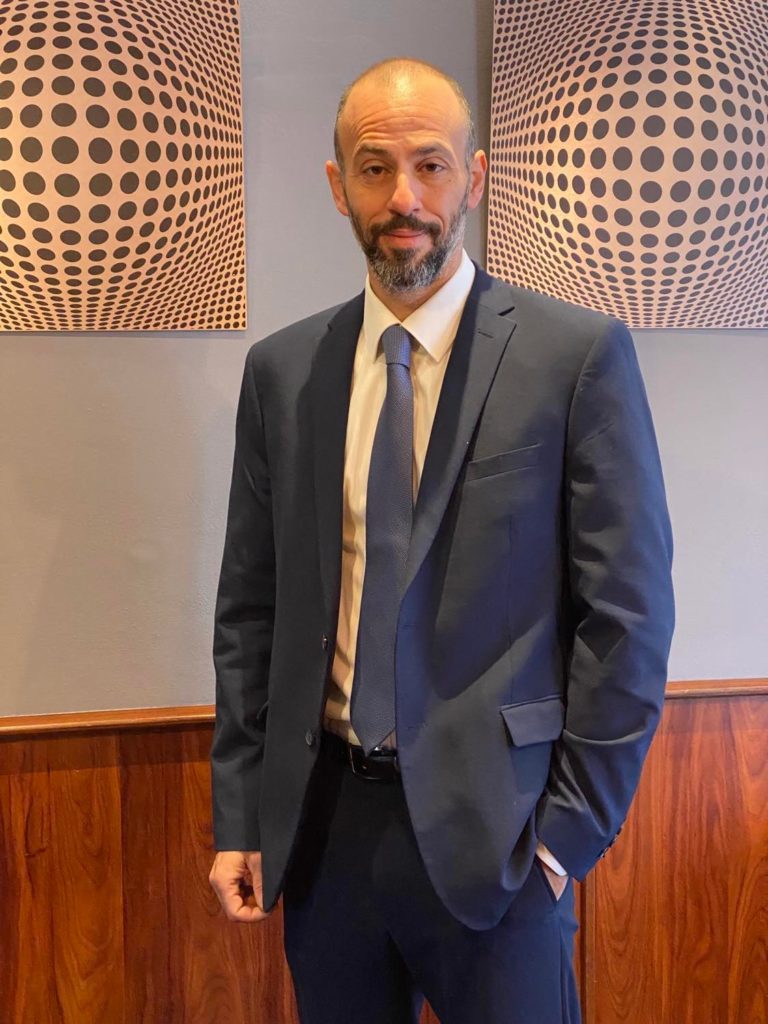
Global Law Experts
Lawyers
Countries Covered
Practice Areas
Find independent Wills & Estates lawyers worldwide on Global Law Experts. Explore award-winning legal experts and connect with top professionals.




































No results available Reset filters?
posted 1 hour ago
posted 4 months ago
posted 4 months ago
posted 4 months ago
posted 4 months ago
posted 5 months ago
posted 5 months ago
posted 5 months ago
No results available Reset filters?
Planning your estate and preparing a will ensures your assets are protected and your wishes are honored. Whether you’re drafting your first will, establishing trusts, or navigating probate, having the right legal guidance is essential.
Global Law Experts connects you with experienced wills and estates lawyers who provide tailored advice to safeguard your family, property, and legacy. From straightforward estate planning to complex probate matters, our vetted specialists deliver strategic counsel that gives you peace of mind today and security for tomorrow.
Every GLE member is independently vetted by practice area and jurisdiction.
A Wills and Estates lawyer helps individuals navigate the legal process of preparing for end-of-life and incapacitation. Their primary role involves drafting essential documents like Wills, Trusts, and Powers of Attorney to ensure your assets are protected and distributed according to your wishes. Beyond just paperwork, they provide strategic advice on minimizing estate taxes, choosing the right guardians for minor children, and structuring your plan to prevent family disputes later on.
While you are legally allowed to write your own Will, hiring a lawyer is the safest way to ensure your document actually holds up in court. DIY kits and online forms often fail to account for specific state laws or complex family dynamics, which can lead to the Will being declared invalid after you pass away. A lawyer ensures the document is properly witnessed, clear in its intent, and free of the technical errors that often cause expensive legal battles for heirs.
The main difference lies in timing and objective: an estate planning lawyer works with you while you are alive to prepare documents that protect your assets and future wishes. A probate lawyer comes into the picture after someone has passed away to help the family navigate the court process of settling the estate. While many attorneys handle both areas, estate planning is about prevention and strategy, whereas probate is about administration and resolving claims.
The cost varies significantly depending on where you live and how complex your financial situation is. Many attorneys charge a flat fee for a standard estate planning package, which often includes a Will, Power of Attorney, and Living Will, while others may bill by the hour for more complicated needs. While hiring a professional costs more upfront than a DIY template, it is generally much cheaper than the legal fees your family would pay to fix a broken estate plan later.
You should review your estate plan with your attorney every three to five years to make sure it keeps up with changes in the law and your own life. It is also vital to book a consultation immediately after major life events, such as a marriage, divorce, the birth of a child, or the death of a beneficiary. Regular updates ensure your plan functions exactly as intended when it is finally needed.
Dying without a Will means you have died “intestate,” and the state will step in to decide how your property is distributed based on a strict legal formula. This default process typically prioritizes spouses and children but completely excludes unmarried partners, stepchildren, and close friends. Additionally, the court will appoint an administrator to manage your estate, meaning a stranger or a family member you might not trust could end up in control of your legacy.
Yes, a probate litigation lawyer can help you challenge a Will if you believe there is a valid legal reason to do so. Common grounds for contesting a Will include proving that the deceased lacked the mental capacity to sign it, was under undue influence from a manipulator, or that the document was forged. These are complex legal battles that require strong evidence, so having an experienced attorney is essential to building a successful case.
A Wills and Estates lawyer helps individuals navigate the legal process of preparing for end-of-life and incapacitation. Their primary role involves drafting essential documents like Wills, Trusts, and Powers of Attorney to ensure your assets are protected and distributed according to your wishes. Beyond just paperwork, they provide strategic advice on minimizing estate taxes, choosing the right guardians for minor children, and structuring your plan to prevent family disputes later on.
While you are legally allowed to write your own Will, hiring a lawyer is the safest way to ensure your document actually holds up in court. DIY kits and online forms often fail to account for specific state laws or complex family dynamics, which can lead to the Will being declared invalid after you pass away. A lawyer ensures the document is properly witnessed, clear in its intent, and free of the technical errors that often cause expensive legal battles for heirs.
The main difference lies in timing and objective: an estate planning lawyer works with you while you are alive to prepare documents that protect your assets and future wishes. A probate lawyer comes into the picture after someone has passed away to help the family navigate the court process of settling the estate. While many attorneys handle both areas, estate planning is about prevention and strategy, whereas probate is about administration and resolving claims.
The cost varies significantly depending on where you live and how complex your financial situation is. Many attorneys charge a flat fee for a standard estate planning package, which often includes a Will, Power of Attorney, and Living Will, while others may bill by the hour for more complicated needs. While hiring a professional costs more upfront than a DIY template, it is generally much cheaper than the legal fees your family would pay to fix a broken estate plan later.
You should review your estate plan with your attorney every three to five years to make sure it keeps up with changes in the law and your own life. It is also vital to book a consultation immediately after major life events, such as a marriage, divorce, the birth of a child, or the death of a beneficiary. Regular updates ensure your plan functions exactly as intended when it is finally needed.
Dying without a Will means you have died "intestate," and the state will step in to decide how your property is distributed based on a strict legal formula. This default process typically prioritizes spouses and children but completely excludes unmarried partners, stepchildren, and close friends. Additionally, the court will appoint an administrator to manage your estate, meaning a stranger or a family member you might not trust could end up in control of your legacy.
Yes, a probate litigation lawyer can help you challenge a Will if you believe there is a valid legal reason to do so. Common grounds for contesting a Will include proving that the deceased lacked the mental capacity to sign it, was under undue influence from a manipulator, or that the document was forged. These are complex legal battles that require strong evidence, so having an experienced attorney is essential to building a successful case.
Global Law Experts is dedicated to providing exceptional legal services to clients around the world. With a vast network of highly skilled and experienced lawyers, we are committed to delivering innovative and tailored solutions to meet the diverse needs of our clients in various jurisdictions.

Thinking of buying property in Brazil? Start with a full legal safety net.
✔️ Check title and ownership history
✔️ Verify no debts or disputes
✔️ Confirm zoning and permits.
#BrazilProperty #RealEstateInvesting #LegalDueDiligence #ForeignInvestment #PropertyLaw #GlobalRealEstate #InvestmentRisk #BrazilLaw

When your international business faces financial distress, quick action is key! 🔑 Negotiating with creditors, restructuring debt, and understanding insolvency laws can help regain stability. Global Law Experts is here to guide you through your options.
🌍Explore the details on our website.
🔗Link in bio
#GlobalLawExperts #CommercialLaw #BusinessLaw #LegalAdvice #BusinessGrowth #LegalTips #BusinessStrategy #LegalCompliance #Law #LegalKnowledge #LegalAwareness #Law101 #LegalEducation #IntellectualProperty

Thinking of buying property in Brazil? Don’t stop at the contract or key handover. Make sure the title is officially registered before calling it yours.
#BrazilRealEstate #PropertyLaw #GlobalInvestment #ForeignInvestors #LegalTips #DueDiligence #RealEstateRegistration #SecureInvestment

Getting a termination notice right now? Know your rights. Valid reason, fair process, proper notice they matter. Don’t let a bad dismissal walk away without accountability.
#EmploymentLaw #WorkerRights #Termination #LaborLaw #FairDismissal #WorkplaceJustice #LegalAwareness #GlobalWorkforce

Running a business is hard enough — lawsuits shouldn’t make it harder. 🚫 Protect your business with the right legal strategies and expert tools from Global Law Experts. Let’s secure your future together! 💼
🌍Explore the details on our website.
➡️www.globallawexperts.com
#GlobalLawExperts #CommercialLaw #BusinessLaw #LegalAdvice #BusinessGrowth #LegalTips #BusinessStrategy #LegalCompliance #Law #LegalKnowledge #LegalAwareness #Law101 #LegalEducation #IntellectualProperty #Infringed #Ecommerce #LegalBranding
Global Law Experts is dedicated to providing exceptional legal services to clients around the world. With a vast network of highly skilled and experienced lawyers, we are committed to delivering innovative and tailored solutions to meet the diverse needs of our clients in various jurisdictions.

Thinking of buying property in Brazil? Start with a full legal safety net.
✔️ Check title and ownership history
✔️ Verify no debts or disputes
✔️ Confirm zoning and permits.
#BrazilProperty #RealEstateInvesting #LegalDueDiligence #ForeignInvestment #PropertyLaw #GlobalRealEstate #InvestmentRisk #BrazilLaw

When your international business faces financial distress, quick action is key! 🔑 Negotiating with creditors, restructuring debt, and understanding insolvency laws can help regain stability. Global Law Experts is here to guide you through your options.
🌍Explore the details on our website.
🔗Link in bio
#GlobalLawExperts #CommercialLaw #BusinessLaw #LegalAdvice #BusinessGrowth #LegalTips #BusinessStrategy #LegalCompliance #Law #LegalKnowledge #LegalAwareness #Law101 #LegalEducation #IntellectualProperty

Thinking of buying property in Brazil? Don’t stop at the contract or key handover. Make sure the title is officially registered before calling it yours.
#BrazilRealEstate #PropertyLaw #GlobalInvestment #ForeignInvestors #LegalTips #DueDiligence #RealEstateRegistration #SecureInvestment

Getting a termination notice right now? Know your rights. Valid reason, fair process, proper notice they matter. Don’t let a bad dismissal walk away without accountability.
#EmploymentLaw #WorkerRights #Termination #LaborLaw #FairDismissal #WorkplaceJustice #LegalAwareness #GlobalWorkforce

Running a business is hard enough — lawsuits shouldn’t make it harder. 🚫 Protect your business with the right legal strategies and expert tools from Global Law Experts. Let’s secure your future together! 💼
🌍Explore the details on our website.
➡️www.globallawexperts.com
#GlobalLawExperts #CommercialLaw #BusinessLaw #LegalAdvice #BusinessGrowth #LegalTips #BusinessStrategy #LegalCompliance #Law #LegalKnowledge #LegalAwareness #Law101 #LegalEducation #IntellectualProperty #Infringed #Ecommerce #LegalBranding

Send welcome message